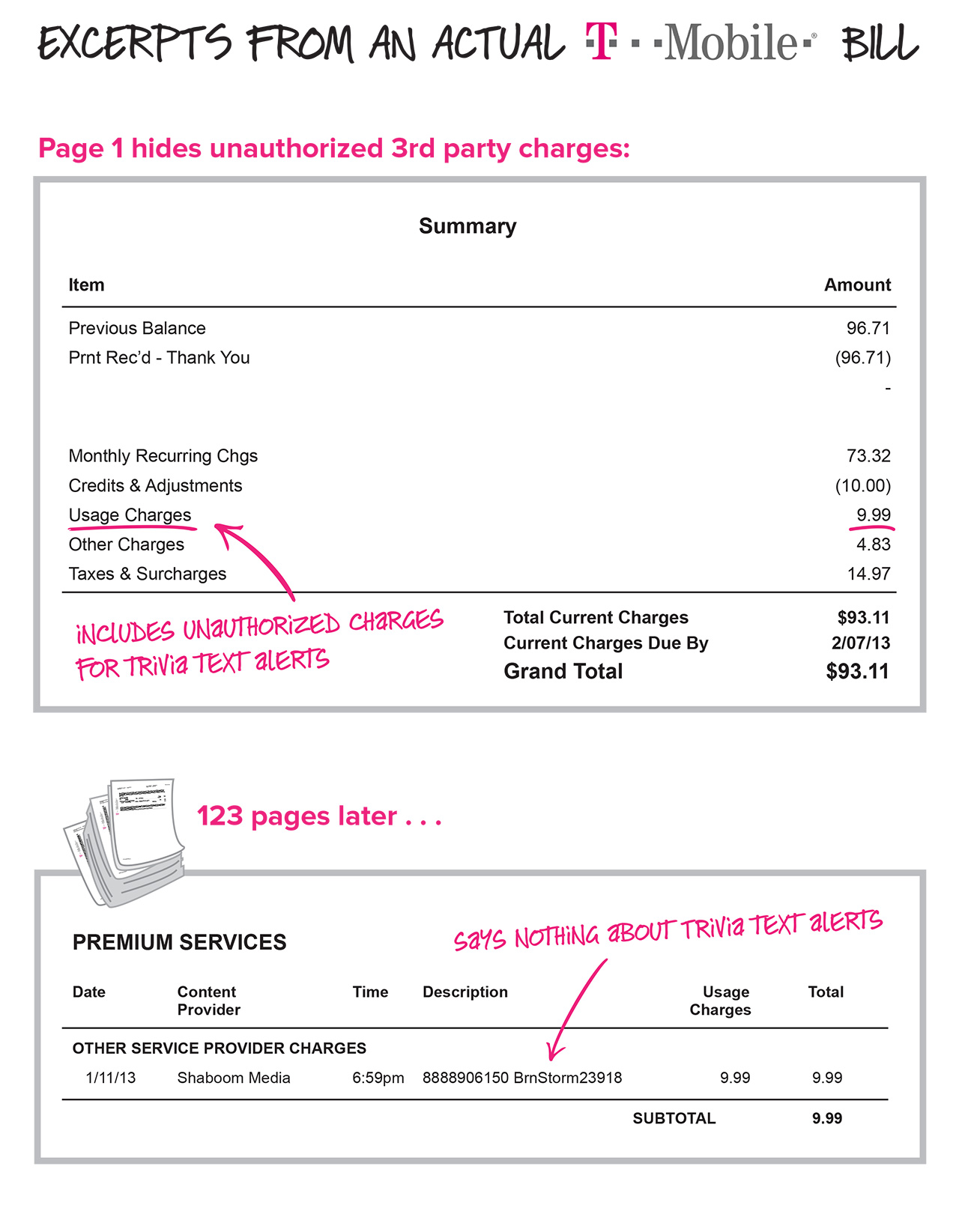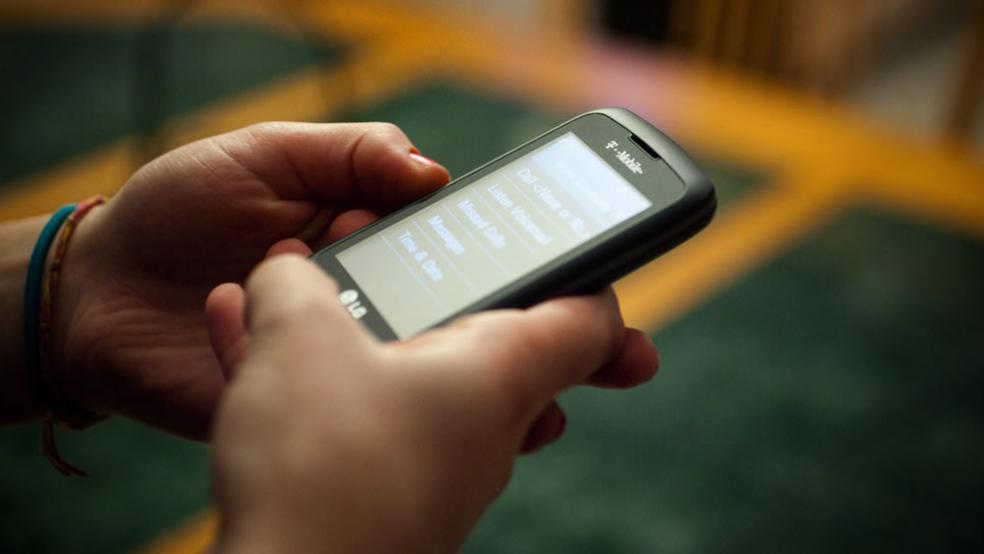T-Mobile subscribers, pull out your old bills and prepare to get upset.
The cellular service provider has been billing its subscribers for “hundreds of millions of dollars” worth of unwanted subscriptions to daily horoscopes, flirting tips and celebrity gossip while profiting from those so-called “cramming” charges, a complaint filed by the Federal Trade Commission on Tuesday alleges.
The FTC claims that between 2009 and 2013, T-Mobile placed charges on customers' phone bills for premium subscriptions to this spam-like content without notifying them. And on top of that, the FTC says, T-Mobile made it difficult for customers to detect the charges. On monthly phone bills, for instance, the charges would be listed in a confusing abbreviated form like “8888906150BrnStorm23918” that did not clearly explain what it was for.
Related: 42 Million Credit Cards Could Have Errors
T-Mobile USA issued a statement denying the claim.
“We have seen the complaint filed today by the FTC and find it to be unfounded and without merit,” CEO John Legere said in a statement. “In fact T-Mobile stopped billing for these Premium SMS services last year and launched a proactive program to provide full refunds for any customer that feels that they were charged for something they did not want. T-Mobile is fighting harder than any of the carriers to change the way the wireless industry operates and we are disappointed that the FTC has chosen to file this action against the most pro-consumer company in the industry rather than the real bad actors.”
In its complaint, the FTC alleges that “because such a large number of people were seeking refunds, it was an obvious sign to T-Mobile” that the charges were never authorized by its customers. It also says that the refund rate “significantly understates the percentage of customers” who were billed for these unwanted services, as far more charges likely went undetected.
“It’s wrong for a company like T-Mobile to profit from scams against its customers when there were clear warning signs the charges it was imposing were fraudulent,” FTC Chairwoman Edith Ramirez said in a statement.
T-Mobile receives around 35 to 40 percent of the subscription sales, which are typically each around $9.99 per month. The FTC notes that if customers want to subscribe to these services they have to opt-in twice before they can actually be charged. But the FTC claims that deceptive advertisements hid the fact that the consumers were agreeing to the charges.
The FTC has previously taken action against at least 30 companies for similar offenses, but this is the first against a wireless carrier. The agency said in a statement that it is aiming to “permanently prevent T-Mobile” from continuing the alleged scheme, and ensure that T-Mobile repays all its customers for these charges.”
Here’s the FTC’s example of what a customer bill with the bogus third-party charges looked like:

Top Reads from the Fiscal Times:





